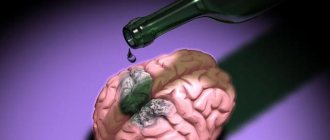Removal from coma - this is how we can formulate what we do when working with seriously ill patients after a major stroke, traumatic brain injury, or acute intoxication.
Our expert in this field:
Khartukova Natalya Evgenievna
Anesthesiologist-reanimatologist, deputy chief physician for anesthesiology and resuscitation
Call the doctor
Ultimately, this is precisely the goal of all our efforts, the doctors of the anesthesiology and intensive care department of the Medicine 24/7 clinic.
Our goal is not just to ensure vital processes, combat complications and prevent new complications. Although this requires continuous monitoring of the patient, constant therapeutic measures, and high-tech equipment. It is important not just to save a person’s life and maintain his livelihood. It is important to bring him out of the coma with the most favorable prognosis.
Relatives and loved ones of the person with whom the misfortune happened ask us about this. What will he be like after a coma? What will his life be like after the coma?
This largely depends on factors that we cannot influence. And we talk about this directly. For our part, we do everything to achieve the maximum possible. And sometimes the impossible.
And such cases occur in the practice of our clinic. Therefore, you should never despair or give up. Even in the most severe condition, when a person is in a 3rd or 4th degree coma, hope remains. As long as he breathes and we keep him alive.
What could be the way out of a coma?
There are three options for exiting a coma. The first involves partial restoration of the nervous system and brain function. After this, everything will depend on the success of the rehabilitation course. In some cases, a person recovers so much that he can do without outside help and live an almost normal life.
Of course, some consequences will still remain. Staying in a coma cannot pass without leaving a trace. It is likely that motor, speech, and cognitive impairments will remain, and personality changes will occur. But this is something that a person’s loved ones are usually prepared for. His return in itself is perceived by them as salvation.
Even when, despite long-term rehabilitation, a person remains disabled, this is not the worst thing that can happen to him. Because the second option is to exit the coma into a vegetative state.
In this case, cognitive, motor, and speech abilities will be lost. But the person will remain alive, and as long as he is alive, there will be hope. Even if from a medical point of view it is equal or close to zero.
The person will need constant care, attention, care, to which he probably will not even respond. Not everyone close to you is ready for this. But still, this is not the worst thing, because there is a third option for exiting a coma - death.
Our task, the doctors of the anesthesiology and intensive care department of the Medicine 24/7 clinic, is to ensure that the person comes out of the coma according to the first option. And when we succeed, we consider it our victory and success. This is the best reward for our efforts.
We will call you back
Leave your phone number
Causes of death
It is possible to find out whether a person feels the approach of his death or not only when he is conscious. For example, it is quite difficult to find out whether it hurts to die from a fall, because... It is possible to assess a person’s condition and feelings only from the stories of survivors. Many people say that they do not remember the flight, i.e. “everything happens in a fog,” moreover, they don’t remember whether it hurts or not. According to statistics, a fall from a height of more than 10 meters in 90% ends with a person dying. Depending on what caused the death, one can judge the person’s last feelings and whether he was in pain.
Injuries incompatible with life
Various situations can lead to a person receiving severe organ injuries that are incompatible with life and dying slowly or suddenly. Such events include:
- transport incidents (road accidents, plane crash, maritime disaster);
- knife and gunshot wounds (robbery, domestic quarrel);
- mechanical, chemical, electrical and thermal injuries and their combinations (improper handling of electrical appliances, tools, improper use of chemicals, a person may die from a work injury);
- unforeseen events (a healthy person can fall from a height, choke while eating and die slowly, drown, his heart can stop in a stressful situation).
Important! In Russia, about 20,000 people die every year due to road accidents.
As a result of an accident, death occurs suddenly, and it is difficult to determine whether a person feels his death and whether it hurts when he dies. Most often, accidents are the result of a person neglecting safety rules - driving drunk, crossing the road in the wrong place, using faulty electrical appliances, not wearing protective equipment, etc.
In addition to physical injuries, scientists identify mental and psychological injuries, for example, a person, having lost his entire family in an accident, commits suicide. It is also not uncommon for teenagers to have suicidal tendencies and express them in their statements and actions. At the age of 12 to 18 years, boys and girls have an unstable psyche, they suffer mentally, they largely depend on the opinions of others, and often do something to spite their parents (guardians). Such actions often have irreparable results.
Diseases
Modern man has practically stopped caring about his health - he neglects the rules of personal safety, eats unhealthy food, leads a riotous lifestyle, lives in unfavorable living conditions, even if he is in pain. All this invariably affects his health. Today, we can identify a number of incurable diseases that inevitably lead to a person dying:
- oncological diseases;
- acute lower respiratory tract infections;
- HIV and AIDS.
The patient feels death and during the remaining period of time he experiences a huge range of emotions - from aggression and a sense of injustice to humility and indifference. There are often cases when a person, having learned about a serious illness, does not think about whether it hurts to die, but takes his own life in order to alleviate the suffering of himself and those around him.
Delayed treatment or medical error
The cause of death can be both neglect of one’s own health and negligence of doctors. Thus, many people delay treatment because, for example, they are not paid for sick leave at work, or they do not want to buy expensive medications and use analogues that do not have the desired effect. They continue to lead normal lives even though they are in pain and are slowly dying.
There are often cases when a person dies due to the fact that he was prescribed the wrong treatment or did not receive timely medical care. In megacities, ambulances do not have time to arrive on time due to traffic jams, and in small villages ambulances cannot be received, even if the person is in pain and is in critical condition, since the nearest medical facilities are located at a great distance.
Gaps in the educational programs of educational institutions, the possibility of purchasing a diploma and other documents, lead to the fact that many doctors do not have the appropriate qualifications and knowledge. Due to their errors in diagnosis and prescribed treatment, a person may be in pain for a long time, and ultimately die.
Addiction
Every person has known about the dangers of alcohol and drugs since school. Despite active social propaganda, people aged 14 to 40 actively drink alcohol and try illegal drugs. They die due to:
- overdose;
- consumption of surrogate, adulterated drinks;
- development of diseases due to regular alcohol abuse.
Does it hurt to die from an overdose? Depending on what type of drug a person uses, one can judge how he will die. In all cases, taking narcotic substances causes serious changes in the biochemistry of the brain, which, in turn, leads to visual and bodily hallucinations, pain (a person can commit suicide or cause serious harm to others).
Does it hurt to die from pills? A person addicted to drugs “rots” from the inside, he is constantly in pain, he slowly dies. In order not to endure attacks of pain, the addict constantly takes narcotic substances and increases the dose. Death from drug addiction occurs in most cases due to the appearance of infectious diseases, soft tissue necrosis, and blood poisoning.
People who abuse alcohol also have serious mental problems. Their body does not accept normal foods, becomes exhausted and dies. When injured, a person cannot recover for a long time. You can die from alcohol due to ethyl alcohol poisoning, due to tissue necrosis or external factors, for example, when a drunk person does not control himself and his behavior (for example, he may fall asleep on the street in winter and not wake up).
What does the forecast depend on?
Coma is not just an unconscious state, but a sign of severe damage to the nervous system due to brain damage. Its usual causes are hemorrhagic or ischemic stroke, traumatic brain injury. Like any pathological condition, it has degrees of severity.
- First degree coma is called stupor. Reactions to external stimuli are preserved, but inhibited.
Muscles are tense. The look is floating. Pain sensitivity is reduced. The person does not understand what is being said to him. With timely treatment, a person recovers completely within 10–14 days. - Second degree coma is called stupor. There is no consciousness.
Breathing is impaired. The pupils react poorly to light. No reaction to pain. The movements are chaotic, the person twitches convulsively. The sphincters are relaxed. Provided adequate resuscitation measures are taken, the person regains consciousness after a few days. Full recovery may take several months or a year. - The third degree is called deep coma. The person is unconscious.
The pupils are constricted and do not react to light, there are no reflexes. Blood pressure is reduced. Breathing is shallow, frequent, possible pauses in breathing. Movements are jerky or absent. The person may regain consciousness, but the likelihood of a vegetative state is high. On the other hand, partial recovery is possible. This is the case when especially much depends on the efforts of doctors, their qualifications, the availability of modern equipment and the necessary drugs in the clinic. - The fourth degree is an extreme coma. Reflexes and muscle tone are absent.
The pupils do not react to light. Body temperature and blood pressure are reduced. A person cannot breathe on his own and lives only thanks to life support machines. This condition can last for a long time - months, years, even decades. The changes that have occurred in the brain are irreversible, so recovery from a stage 4 coma will most likely mean a vegetative state. But even in this case one cannot despair.
When we are asked about the prognosis for recovery from a coma, we answer based on objective factors, and these are:
- Age. The best prospects are for patients under 45 years of age.
- Volumes of damage. The wider the area of the stroke or injury, the more brain neurons are lost, and the less chance of recovery. And vice versa.
- Localization of the lesion. The restoration of certain functions depends on which area of the brain has been damaged. Damage to large vessels is more dangerous than damage to small ones.
- Fast first aid. The sooner it was provided, the smaller the volume and severity of the lesion, and the higher the chances of a favorable outcome.
- Causes of defeat. As a rule, the outlook for ischemic stroke is better than for hemorrhagic stroke.
But these are only objective factors. We know that a lot depends on our efforts. At the Medicine 24/7 clinic, we have the most modern equipment, the greatest opportunities for drug therapy, and we do everything to use them with maximum results.
Make an appointment with a specialist
Every tenth person who was on the verge of death talks about unusual sensations and claims that he has visited the other world. Most often they remember the slow passage of time, leaving the body and a bright light at the end of the tunnel. However, scientists do not consider this evidence to be evidence of life after death. The near-death experience rather suggests that after cardiac arrest the brain continues to work for some time, writes RIA Novosti.
Photo by BNK
Afterlife experience finds a scientific explanation
In 2020, specialists from the University of Liege (Belgium) studied the written testimonies of 154 patients who experienced clinical death. Almost everyone described three identical sensations: a feeling of peace, flying through a long tunnel, and a bright light appearing at the end of this journey. Some survivors claimed to leave their bodies and encounter angels and spirits.
However, the order of the experienced sensations did not coincide for the majority. Only 20 percent of respondents said that they first left the boundaries of their physical body, and then began to move through a tunnel, at the end of which they saw a bright light. According to the authors of the work, this indicates that the near-death experience is different for each person. Perhaps the sensations and hallucinations experienced by the dying person depend on their language and culture.
These data coincide with the results of American researchers. For almost four years, they collected stories of patients who experienced clinical death as a result of a heart attack. Scientists interviewed doctors and nurses who were trying to bring these people back to life.
The most surprising thing was that most of the survivors relayed the conversations of the medical personnel almost verbatim and quite accurately reconstructed the order of their actions. A third of patients noted that everything happened very slowly, and time seemed to stand still. In addition, the Americans, who were on the verge of life and death, like the Belgians, experienced a feeling of peace, saw a bright light and their physical body from the outside. All these data may indicate that the brain continues to work for some time after cardiac arrest, and consciousness is preserved.
Memory lasts until the last
Canadian doctors, interested in memories from the other world, decided to test the hypothesis of their American colleagues. They were able to take encephalograms of the brain of four hopeless patients after they were disconnected from life support systems. Despite slight differences at the beginning, they all became very similar for half an hour before death and for another five minutes after it. And this may explain why people experience the same sensations during clinical death.
Moreover, the brain of one of the disconnected patients continued to function for ten minutes after his heart stopped beating. The encephalogram data were similar to those recorded in people in deep sleep. At the same time, the body did not show any signs of life - there was no pulse, no blood pressure, no reaction to light.
Scientists from the University of Montreal (Canada) were able to record brain function even after the encephalogram showed a straight line - the main evidence of the death of nerve cells. They first noticed brain activity above the straight line of the EEG in a patient in a deep coma. Then similar fluctuations were found in the encephalograms of cats that were specially put into a state of reversible coma. Previously unknown vibrations originated in the hippocampus, the part of the brain responsible for memory and cognitive abilities, and were transmitted to the cerebral cortex.
Under the influence of hormones
According to American scientists, the brain not only does not die along with the heart, but, on the contrary, begins to work at double speed. The release of dopamine, a pleasure hormone that plays an important role in the reinforcement system and cognitive processes, increases almost 12 times. Therefore, people may have a feeling of peace on the one hand, and on the other hand, the feeling that they are thinking very quickly. By the way, 65 percent of those who experienced clinical death talk about this.
In addition, at the moment of agony, the level of serotonin increases 20 times, which is why many corresponding receptors are activated in the brain. These, in turn, are associated with visual hallucinations. Leaving the body, meeting angels and spirits, a bright light at the end of the tunnel - all this can be the result of the release of the hormone of happiness.
Israeli researchers attribute near-death experiences to incorrect functioning of the brain, which lacks oxygen due to cardiac arrest and blood flow. The feeling of having your whole life flash before your eyes (almost half of survivors recall this) is most likely the result of activation of the prefrontal, medial temporal and parietal lobes of the brain. These areas are supplied with blood and oxygen the longest and are the last to shut down.
Management of a patient in a coma
The main tasks, goals, specific activities that we carry out in the intensive care unit can be outlined in a list. It will be far from complete, since the patient’s condition may change, and this requires timely adjustments to the treatment program.
At any moment, a patient in the intensive care unit of the Medicine 24/7 clinic is under our constant attention; all indicators of the functioning of his body, vital systems and organs are continuously monitored.
Round-the-clock monitoring allows you to take all necessary actions almost instantly, using the most modern capabilities of our clinic.
What is coma
By definition, coma is a state characterized by complete loss of consciousness. A person in a coma has no active movements, breathing and cardiac activity are impaired. Often, doctors and relatives of the patient are faced with the question of whether they should expect a miracle, or whether the patient should be taken off life support and allowed to die. However, a person in a coma may be much more alive than they seem.











